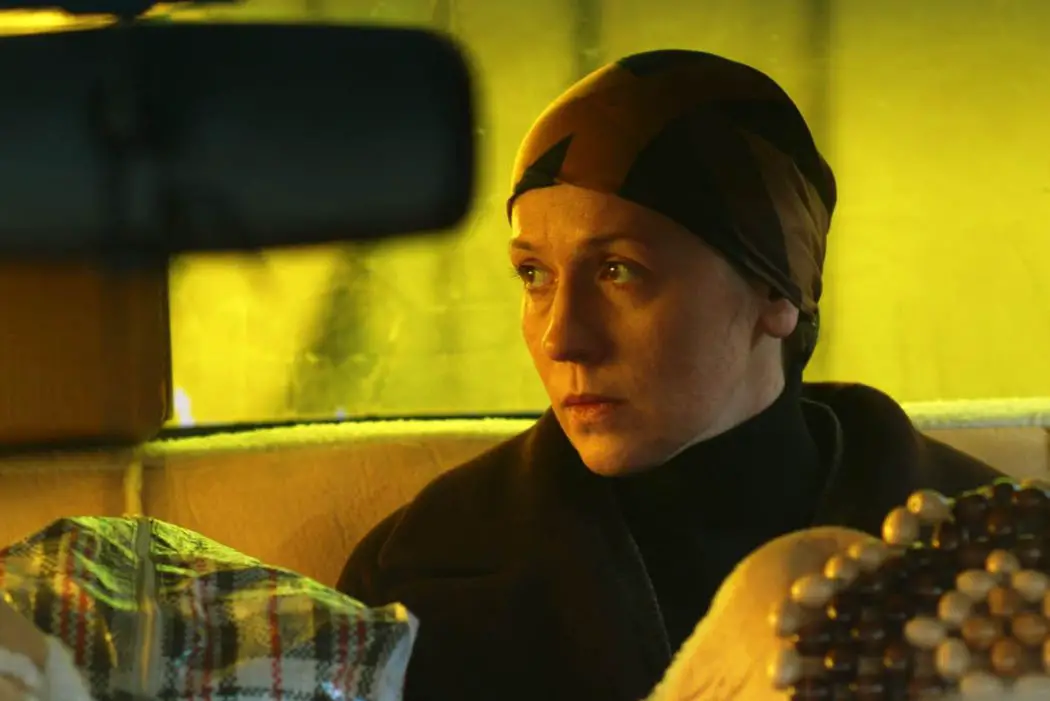CLOSENESS: Kantemir Balagov’s Controversial Debut

Lee Jutton has directed short films starring a killer toaster,…
Kantemir Balagov is only 28 years old, yet he has already received more recognition for his work than many filmmakers do in their entire careers. Both of his first two feature films screened in the Un Certain Regard program at the Cannes Film Festival and took home the FIPRESCI prize, and his sophomore feature, Beanpole, was submitted for Best International Feature Film by Russia at this year’s Academy Awards, though it did not make the final list of nominees. Not too shabby a list of accomplishments for someone under the age of 30, though perhaps also not too much of a surprise considering that he studied under the great Russian filmmaker Alexander Sokurov (Russian Ark).
In light of the acclaim received by Beanpole, which tells the story of two Soviet women returning home from fighting in World War II, Kino Lorber has decided to re-release Balagov’s first feature, Closeness (in Russian, Tesnota), for streaming via Anthology Film Archives. Closeness is an all too apt title, as the tiny community of Nalchik in which the film takes place — which also happens to be Balagov’s hometown — is almost suffocating in its intimacy. The film is a bold first statement from an artist that we will no doubt be hearing much more about in the years to come, so it’s a shame that one’s overall impression of the story suffers from one morally reprehensible decision on the part of the young director.
Hometown Hero
One imagines Balagov must be a man of exceeding confidence, for it isn’t every director who begins his first feature with titles introducing himself and setting up the story to follow: “My name is Kantamir Balagov. I am a Kabardian. I was born in the town of Nalchik in the North Caucasus region of Russia. This story happened in Nalchik in 1998.” From these four sentences, it becomes immediately clear that Closeness comes from a deeply personal place within the film’s director. Later, one may also interpret this statement as a challenge: “You don’t like the choices I’ve made? Well, too bad. It happened. I was there. You must see it as I did.”
Ilana (Darya Zhovner) is a twenty-something tomboy who works in her father’s auto repair shop. Her younger brother, David (Veniamin Katz) is engaged to be married to a woman named Lea. The night of David and Lea’s engagement party, the young couple is kidnapped, and a demand for a hefty ransom is delivered. It is believed that the kidnappers are a gang of Kabardians, members of a Circassian tribe who make up the majority of Nalchik’s population. The close-knit Jewish community to which David and Lea’s families belong does not believe that going to the police is an option; instead, they decide to pool money to raise the amount needed for the ransom. When only enough is raised to bring home one half of the couple, the community chooses Lea, leaving Ilana and her family to scramble to raise enough money to rescue David.

Ilana’s parents decide that the best way to secure the money for David is to essentially sell Ilana’s hand in marriage. The problem? Ilana is in love with Zalim (Nazir Zhukov), a Kabardian, and despite the issues their relationship might have — including the fact that Zalim’s friends are deeply anti-Semitic and unaware that Ilana is Jewish — she refuses to give up the last bit of autonomy she has left in her life for the sake of her brother.
Crossing the Line
Closeness is a movie about tension and conflict: on a personal level, the conflict between one’s own desires and one’s duty to the family, and on a cultural level, the conflict between the different ethnic groups in Russia. The film is shot in a tight 1.37:1 aspect ratio, compressing the characters within an almost square frame that only further heightens the tension between them. The characters are often shown from behind, sitting side by side; without being able to see their faces, one pays extra close attention to their body language and the anxiety (and cigarette smoke) that radiates from them.
First-time actress Darya Zhovner is magnetic as Ilana, the tough-talking young woman who is constantly at odds with her more traditional mother and seeking help from her sympathetic father. Consistently clad in baggy overalls and a sweater beneath a denim jacket with a lion’s face painted on the back, Ilana is happiest when she is either working on a car or hanging out with Zalim. The proud black sheep of her tiny, old-fashioned community, it’s not a surprise that she would seek love and companionship outside of that circle. But as Ilana spends time with Zalim and his friends, she quickly realizes that, as a Jew, she doesn’t belong there either. In a town that thrives on tribalism, Ilana is essentially on her own.

Here is where we inevitably come to the most controversial aspect of Closeness. One evening, while Ilana is hanging out with Zalim and his friends, someone puts on a videotape featuring grainy footage of anti-Semitic violence and murder purported to have come from Chechnya. Zalim’s friends, frustrated at what they believe is the colonization of their ancestral lands by the Jews, argue about whether the videotape is inspirational — these men are standing up for their people! — or disturbing. As Ilana listens to them, she gradually grows more furious before finally exploding and throwing something, nearly outing herself as a Jewish woman in their midst.
On the surface, this scene is upsetting, but its inclusion makes sense for the story; it makes one keenly aware of the deep cultural divides in this community, which are crucial to understanding how Closeness plays out. The problem is that the videotape the Kabardians watch in the film is not something staged for the film, but real footage of people being tortured and killed. Balagov has effectively snuck a snuff film into his narrative, breaking what may be the last remaining cinematic taboo. Balagov’s reasons for doing so are, once again, deeply personal; he apparently saw this footage as a young Kabardian growing up in Nalchik. It clearly made a lasting impression on him, one that he wanted to share with his audience. However, this decision, while bold, is also irresponsible and extremely upsetting. In the end, the decision to use this footage makes what is overall an excellent film leave a bad taste in one’s mouth.
Conclusion
Closeness is an intriguing debut film that is marred by one incredibly bad choice on the part of its director. If one is able to stomach the inclusion of the snuff film, there is plenty else worth watching here, but for a great many audience members, that may be far too much to ask.
What do you think? Does the inclusion of footage of real violence keep you from wanting to see this film? Share your thoughts in the comments below.
Closeness is currently available for streaming via Anthology Film Archives.
Watch Closeness
Does content like this matter to you?
Become a Member and support film journalism. Unlock access to all of Film Inquiry`s great articles. Join a community of like-minded readers who are passionate about cinema - get access to our private members Network, give back to independent filmmakers, and more.
Lee Jutton has directed short films starring a killer toaster, a killer Christmas tree, and a not-killer leopard. Her writing has appeared in publications such as Film School Rejects, Bitch: A Feminist Response to Pop Culture, Bitch Flicks, TV Fanatic, and Just Press Play. When not watching, making, or writing about films, she can usually be found on Twitter obsessing over soccer, BTS, and her cat.













